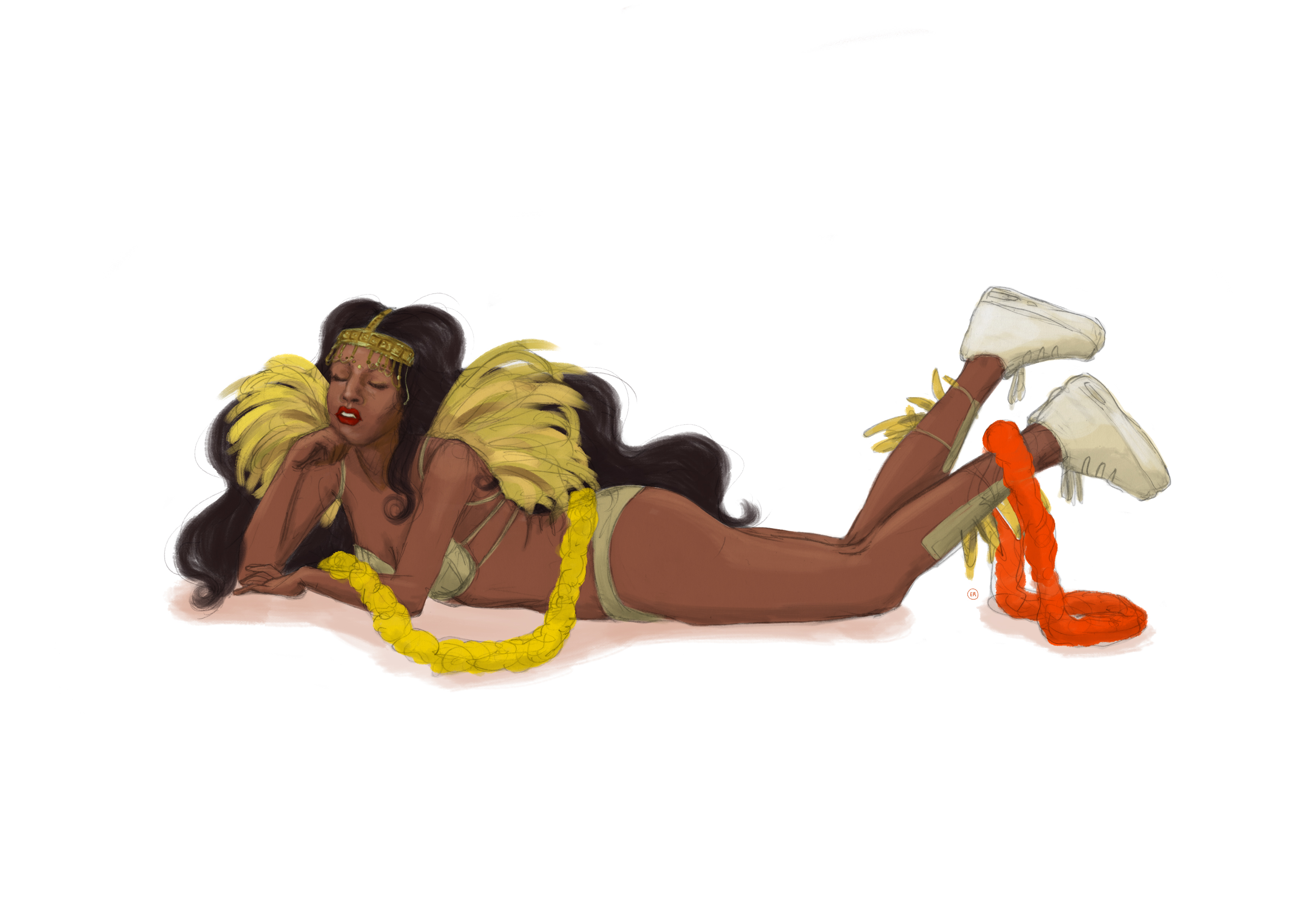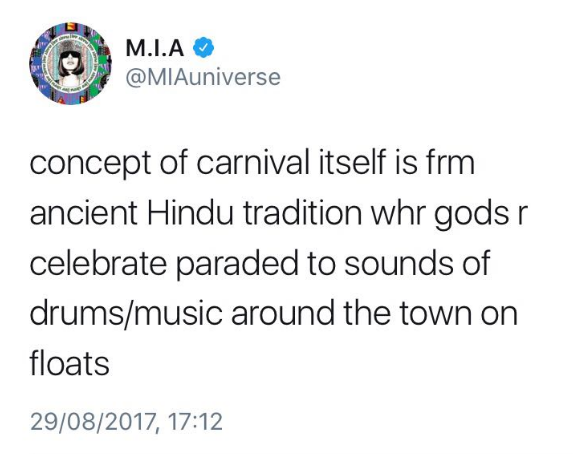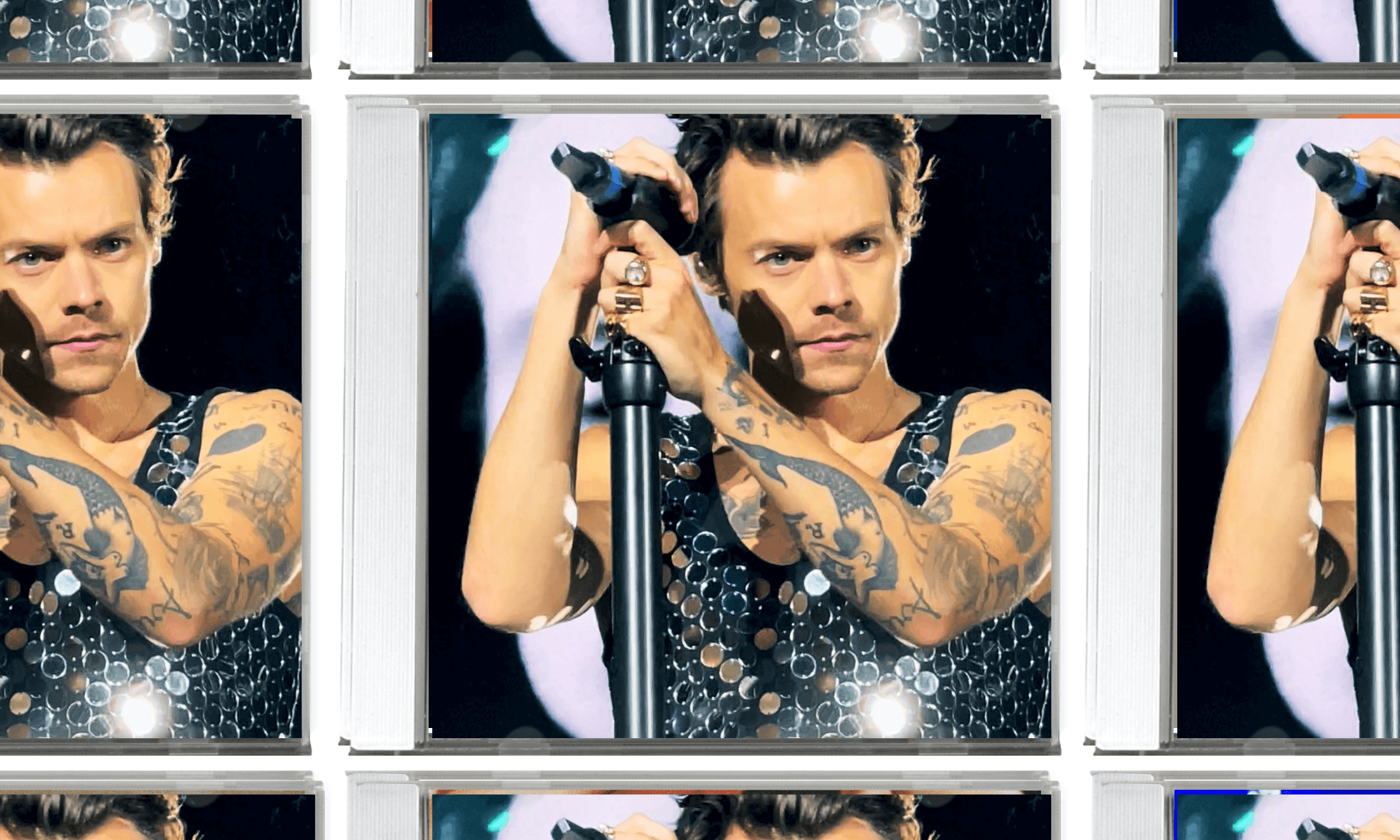
M.I.A has always been known for her outspoken political views, most notably on the refugee crisis, as she herself fled from the Sri Lankan civil war where Tamil people demanding independence were targeted by the Sinhalese military. The 25 year conflict left behind around 100,000 deaths and over 300,000 displaced Tamil civilians globally. As a Sri Lankan Tamil like M.I.A, and a child of refugees from the war, I have lived around the aftermath of the troubles and it is a part of me.
Combine this trauma with the usual racism and microaggressions we face as people of colour, it is unsurprising that M.I.A is so passionate about these issues. We see refugees being ostracised and rejected. We see our culture being erased and washed away, both in a motherland which is no longer ours and in a new home where we reside as diaspora. At a time when it seemed no one else heard or cared about us, M.I.A was doing her best to expose our struggles.
“in the summer of 2016 she made comments calling out Beyonce and Kendrick Lamar for their involvement in the Black Lives Matter movement“
However, lately, M.I.A is becoming increasingly well known for making misguided and controversial statements; in the summer of 2016 she made comments calling out Beyonce and Kendrick Lamar for their involvement in the Black Lives Matter movement and their lack of involvement in the Syrian and Palestinian refugee crisis. More recently, following Notting Hill Carnival, M.I.A tweeted to tell her audience that the concept of carnival is actually rooted in ancient Hindu festivals, called Thiruvila, where Gods are paraded on floats.

Notting Hill Carnival was born following race riots which were in turn a response to systemic racism against black people in the UK during the Windrush era. It was initially held indoors and televised to showcase unity and promote peace. Over the years it has grown to what it is today as one of the largest public street parties and celebrations in the world. It is still a space for Caribbean and black people to come together and celebrate in a country and time that is still very much anti-black, although all races are welcome.
“If M.I.A understood the importance and significance of Carnival, she could be calling out these problems and supporting black people as opposed to trying to trump them”
However, lately gentrification has been occurring and the message of carnival obscured by commercialisation and whitewashing of the event. Compounding the issue is continuous bad press and demonisation of the event, with the media disproportionately highlighting drug use and crime, despite the fact this occurs at all British festivals (often at a higher rate). As a result Notting Hill continues to be confined to smaller and smaller spaces. If M.I.A understood the importance and significance of Carnival, she could be calling out these problems and supporting black people as opposed to trying to trump them. It is easy to feel oppressed as a minority but that does not necessarily mean the majority are your oppressors. Carnival is a response to the same institutions and systems that M.I.A is fighting, not a cause of them.
Black people are not here to fight everyone’s battles. Whilst it is important to recognise and share histories of cultures and their meanings, there are ways of doing so without playing cultural competition or oppression olympics. In reality all this does is cause division when a lot of what we’re fighting against is the same.
It is understandable to feel like our culture and struggles are underrepresented and unknown but we cannot demand space from already oppressed black spaces and movements. Working in opposition to other oppressed groups only serves to further marginalise both. To find space, we must create and celebrate our own.
This article has been updated – 5 September 2017. Updates clarify author’s position on colourism & anti-blackness.









